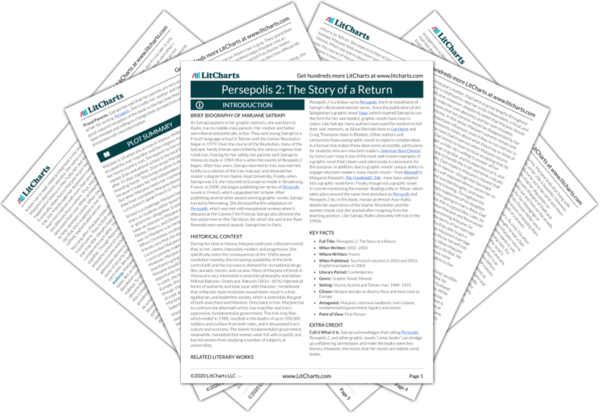Though Marjane’s story ends with her relationships with her family stronger than ever, the note about Marjane’s grandmother’s death makes it clear that these strong, adult relationships can’t last forever. Inevitably, parents and grandparents get old and pass away. Even though Marjane’s parents and grandmother are certainly aware of this, it’s still important to them to encourage Marjane to seek a better life for herself in Europe. In this sense, they remain guardians long after Marjane is an adult. Marjane’s final lesson is that her personal happiness may come at the expense of seeing her family regularly—but her happiness is more important to her family than having her nearby and miserable.


